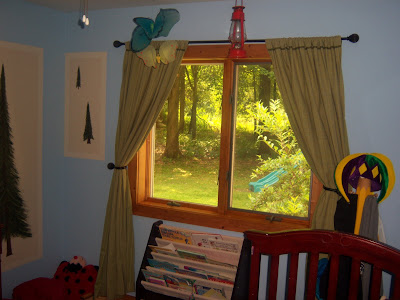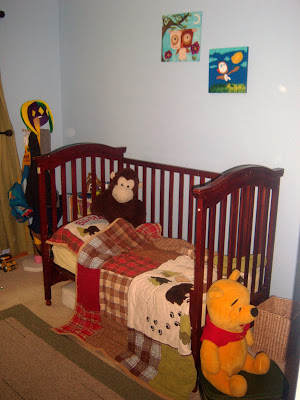There have been a lot of bigger than usual purchases taking place or being considered in our household lately. We have tried to make each one in a very thoughtful way, seeking to minimize our impact on the planet with our purchases. I think it's worth noting though, that we did not necessarily run out and buy organic/recycled/sustainable/whatever-other-greenwashing-terms each time. These are some things we considered with each purchase and some examples.
1. What can we reuse around here? I shop around first and try to use
innovative economy to come up with creative solutions for reusing our things. I was able to do this with the frames in the
robot room.
2. Can we make it/fix it? Let me clarify, we are not handy people. So our ability to make things and fix things is limited. But when we can do it, like with our
clothesline, it saves us from most any purchasing. We were also able to do our best on the
floors, saving us thousands.
3. Can we hire someone locally to make/fix it? When we cannot do the work ourselves (which is often), we look to hiring local people to help us. This supports our local economy and cuts down on travel, production, and often manufacturing impact. We were able to find someone local to make the loft bed in Tucker's room. We took the check together to
Mr. Harry and the result of doing good by keeping the money in our neighborhood was tangible to all of us.
4. Can we get it second-hand? I always look to
second hand early in the shopping process. If I can find something second-hand locally, that is a new-to-me product with virtually no impact on the planet.
5. Is there an affordable "green" alternative for purchase (first locally and then by order)? I love doing the very best for the planet, but I am not made of money. And unfortunately, many of the green options out there still require quite a bit of it. Luckily, when I ask questions 1-4 first, this one often isn't a concern. Sometimes I get to this point and I have to really look at where I can best spend my money. For Tucker's mattress, we went "green" because second hand wasn't an option.
6. What are the special considerations for our home and what will last the longest? When buying each product we really consider, how long will this last. That often goes into how much we are willing to pay and the product's long-term impact on the planet. With the rug in
Tucker's room, I could not find a second-hand, local, or green alternative we could afford. I also knew that we needed a certain type of rug, or the dog would destroy it within days. So I purchased an affordable, but not green rug. There is certainly a trade-off. The rug smells like the chemicals it was created with, but it will not need to be replaced for quite some time and suits our needs quite well.
There isn't one cut and dry answer for every purchase. But as we train our minds to take into account the whole picture for our health, our pocketbooks, our communities, and the planet, we will start to make better purchasing decisions.
What are the things you ponder before purchasing?
















































